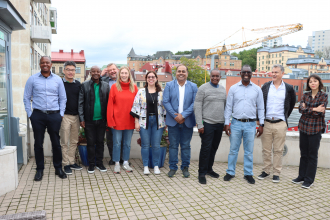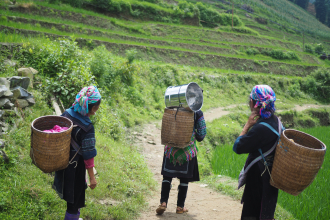
EfD Chile researcher elected President of the Chilean Society of Regional Studies
The Chilean Society of Regional Studies (SOCHER) active fellows has elected Mauricio Oyarzo, Associate Professor at the School of Business and Administration of the University of Concepción (UdeC) and…

EfD Chile researcher talked about air pollution on the radio
The Director of NENRE EfD-Chile, Marcela Jaime, was interviewed on the radio program "Todos Juntos"(All Together in English) by the host Marlene Guerrero regarding two studies: the evaluation of the…
Corporate Social Responsibility and the Willingness to Eco-Innovate among Chilean Firm
Adopting social responsibility can be a key strategy for firms to mitigate the impact of production on the environment, contributing to a more sustainable business model. Based on the triple bottom line perspective, we analyze the effect of Corporate Social Responsibility (CSR) on the willingness to allocate resources to eco-innovation among companies in a developing country.

The SDG 8 Initiative is supported by “satellites”
The SDG 8 Initiative, which is coordinated from the University of Gothenburg, includes several collaborating institutions, among others eight so-called Satellite Universities in low- and middle-income…

Gender and finance issues hinder a green energy transition
Last month, the co-leaders of SETI, Marcela Jaime and Marc Jeuland, alongside investigators Arjan de Haan, Mairi Dupar, Jonathan Phillips, Bhim Adhikari and Flaubert Mbiekop; released a policy brief…

Why biomass dependency is the “most urgent problem to solve in Africa”
More than three billion people globally rely on biomass fuels, such as coal, charcoal, and firewood for cooking and heating. The problems associated with this use have been known for decades, but…
Pagination
- Previous page
- Page 26
- Next page
